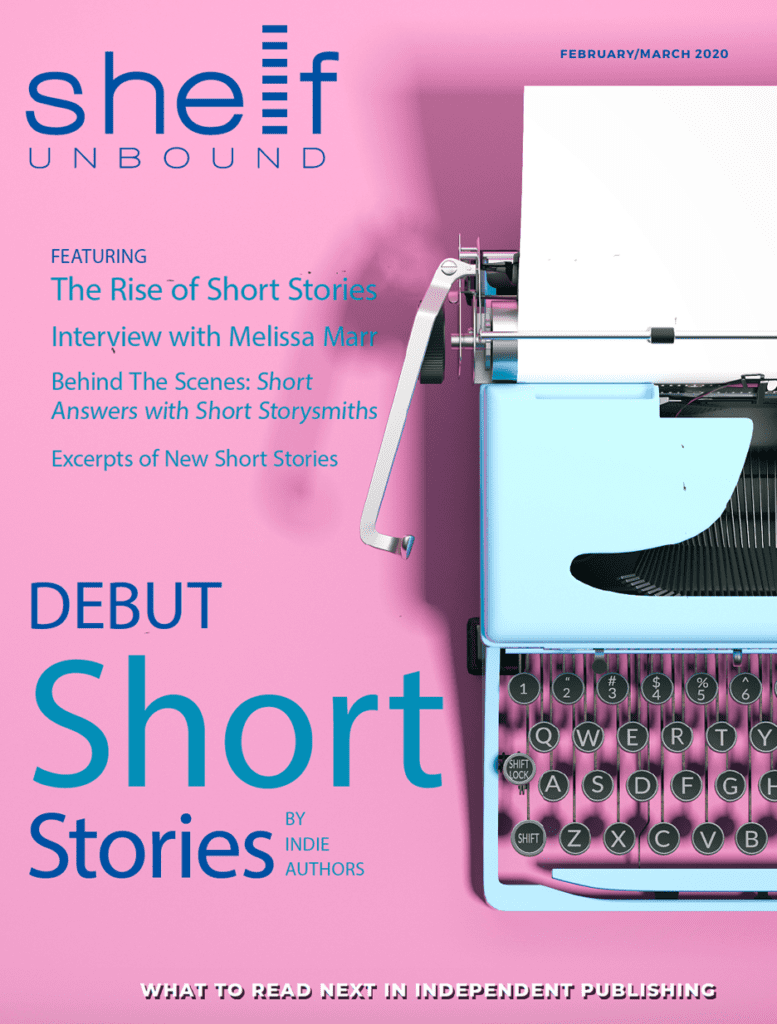One editor and three authors spoke with Shelf Unbound about the appeal of the short story format and give deeper insight into their most recent collections!
Alysia Constantine
Editor of the forthcoming Short Stuff anthology, Duet Books, available June 2020
“Editing this great collection of stories, all of which feature queer characters, gave me hope that our collective imaginary is expanding to include more of us. I hope even more that it will continue to expand. Perhaps this book will be a catalyst; we can look at it and ask, “Whose story is still missing?” And once our imaginary begins to expand, we can listen for those stories.
From the start, the idea for the anthology was to have feel-good, low angst stories. We reached out to authors we’ve previously worked with and perhaps not unexpectedly, the stories began to take the form of “meet-cutes.” But one took an unexpected turn when fantasy author Julia Ember, who has an academic background in Medieval Literature, turned in a surprise: a YA reimagining of the epic poem, Beowolf. At first, we thought, we can’t go with meet-cutes. And then we realized that [Ember’s] story is technically just that… except one of the characters is a young woman who is also a dragon.”
In Short Stuff, bestselling and award-winning authors dial down the angst in four meet-cute LGBTQ young adult romances.
Peg Alford Pursell
Author of A Girl Goes Into the Forest, Dzanc Books

“I’m drawn to the challenge of suggesting an entire world in a short space on the page, in a limited number of words. A story can be read in one sitting while offering the possibility of a complete artistic experience. It asks that the reader become a fuller participant in the experience, and does this through what is left unsaid, primarily. The story expands beyond the page, and the reader is active in that expansion. The more compression and brevity, the more expansion. Ideally, the more potency. My desire in writing the short story—sometimes less than a page long—is to excite the reader’s active engagement.
I can’t pinpoint a single inspiration for A Girl Goes into the Forest, since I often don’t know the mysterious source of my writing. This is the magical part of the process, finding out those various currents myself. Eventually, I’m able to discern patterns, motifs, obsessions. This collection is concerned with women and agency, comprised of sections introduced by lines from the Hans Christian Andersen’s “The Snow Queen,” a fairy tale in which Gerda (the girl) rescues Kay (the boy).”
In forests literal and metaphorical, the characters try, fail, and try again to see the world, to hear each other, and to speak the truth of their longings. Powerful, lyrical, and precise, Pursell’s stories call up a world at once mysterious and recognizable.
Claire Hopple
Author of Tired People Seeing America, Dostoyevsky Wannabe

“I’ve always been drawn to technique, dialogue, and characters more than plot. Short stories allow me to make every word intentional without sacrificing some sort of major buildup in narrative. You never get bored with the characters. It’s also more palatable to non-readers or people who have a difficult time focusing. Not everyone needs to know the color of a sweater or the weather outside unless it’s relevant to the story, and that’s an incredible thing. The economy of words is an art in itself.
The story “Grip” came about the summer I kept passing a sign for a reptile show on my way to work. The very fact that something like that existed just sort of lit up my brain. Doing a little research and jotting down a few notes helped me realize this was also a vehicle for displaying vulnerability in a singularly humorous way. The setting morphed into a reptile-themed birthday party for a child.”
From historical reenactors to waterbed owners to professional mermaids, the characters in Tired People Seeing America grapple with the postmodern American landscape and its effects on personal identity.
Dalia Rosenfeld
Author of The Worlds We Think We Know, Milkweed Editions

“When I write a story, I love the challenge of trying to elicit, in the span of a few pages, a strong feeling on the part of the reader about people they have never met and situations they have never experienced. While a short story cannot claim the expansiveness of a novel, its power lies in its concision and compression, in its ability to evoke emotions through efficiency, and even ambiguity:
The things that writers choose to leave out can be as revelatory as what they choose to put in. It is this tension that I’m drawn to, the self-restraint of every sentence that allows for each word to matter, and for a world to unfold through its language. Nothing would please me more than for a reader to linger over a scene in one of my stories—or even a single image in a scene—smile, and say to themselves, ‘Hey, I like that.’”
Fiercely funny and entirely original, this debut collection of stories takes readers from the United States to Israel and back again to examine the mystifying reaches of our own minds and hearts.

Continue Reading…
Article originally Published in the February/March 2020 Issue “Short Stories”
